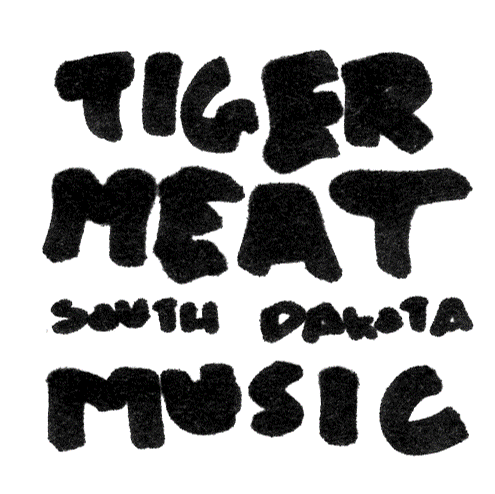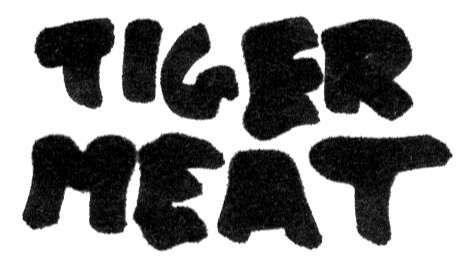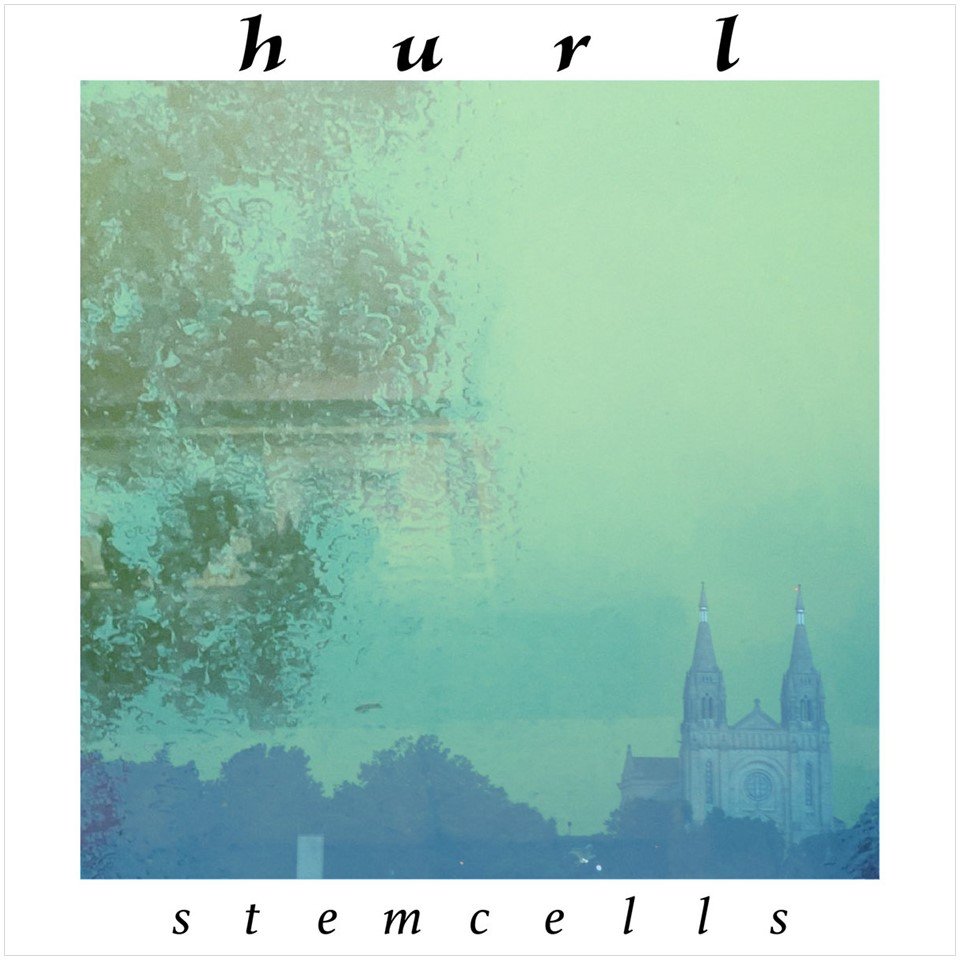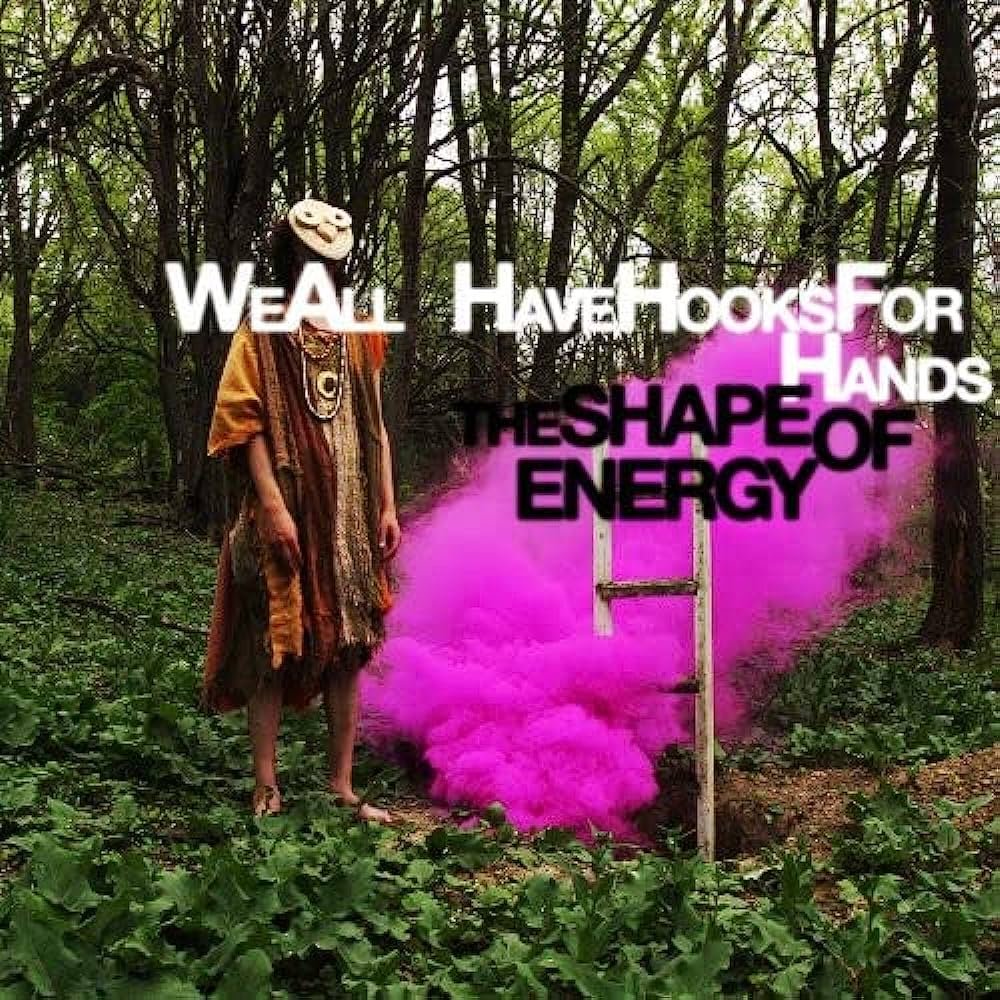Stem Cells
Hurl
2022 | Rock
— track 9: “Pony Show”
Simon Keller: Hurl is like all the good parts of the [2020 self-titled] EP before it, and none of the bad parts. We got rid of a bunch of shit I didn't like on the EP, and then just redid it with all the good stuff.
Travis Morrison: We went to St. Louis [to record]. We worked with a guy named Ryan Wasoba of Bird Cloud Recording. I actually discovered him on TikTok, of all places. He does this series called 19 Second Songs, and it's exactly that. He has three albums, 10 tracks each, and they're all 19 seconds long. And they're awesome.
Simon Keller: He was the lead guy in So Many Dynamos.
Travis Morrison: They were kind of a math rock, post punk thing in the early 2000s. So yeah, I saw this funny 19 second song, I followed him, and then later it was like, "Oh, he has a studio. Oh, he does some cool shit in his studio." He's very experimental with the way he mics things and mixes things, puts interesting effects in. He has to try something new every single time you record with him just because, I don't know if he gets bored, or whatever his philosophy is, but he always wants to try something new. And I was like, "Well, we're kind of on the noise rock side of things, that works out." Working with Ryan was awesome. He's a great dude. He's super funny, an incredibly talented musician and composer. I think he went to jazz school, so he's got that kind of compositional mind. He also was never afraid to tell us when something sounded like shit, which is great. Sometimes you get stuck in the smell of your own farts, and you think you're the best band ever. There was one point when I was tracking bass and he just said, "Hey, don't do that." And, that was the cutoff for that. "Cool. Sick. Value your opinion, man." The recording process ended up being very sleek because of that. It was pretty much from the time we woke up and sat in the control room to the time we all went to bed. Something was pretty much happening consistently.
Simon Keller: How many days were we there? Six days? We were in an old church that had been renovated to be a house. There is one window in the building and that's on the back door. So it was six days, but there was no sunlight, so it felt like one day.
Zachary Smalley: I think we need to really paint the picture. Because I feel like "abandoned church" really lends itself towards wood floors and stained glass. No, no, no. Think Lutheran church chapel converted to become an early-2000s garage. But ultimately, it's just full of studio goodies, and then the basement is a windowless spot that has your school-style tile flooring, and then a couple beds around in a dark, dreary basement. So we'd sleep there together like Marines in the barracks.
Simon Keller: It was like the hangout room where you play Nintendo at youth group, that's where we were sleeping.
Zachary Smalley: And so you'd wake up at god-knows what time because you haven't seen the sun. We'd all go like, "Oh man, what time is it? Oh, it's one in the fucking afternoon," and we all just woke up, and Ryan's like, "Alright guys, get your coffee, it's time to record." And you'd do that until, I don't know, 3am the next day, for six days straight. We were there an extra day past what we expected to be, because Ryan was like, "I don't think we're gonna get it done." We had so much going on. Ryan loved trying anything and everything. His philosophy that he voiced at some point was like, "Worst that happens is I don't use it." He's like, "I'll put a mic in a dumb spot because I got the mics. Worst that happens is I delete the channel, clear the tracks." We had mics in the bathroom next to the youth group hangout spot, or mics inside of cases across the room.
Simon Keller: Oh yeah, I forgot. That was like the sub kick. We threw an SM7 in the kick drum case and then just put it somewhere in the room. It was super fun. And he had a bunch of crazy guitars. Like, in 2007, VW released a new Beetle, and Slash was the spokesperson. So if you bought a 2007 VW Beetle, it came with a guitar. Ryan has one of those guitars, and we used it. It sounded crazy. You could plug the guitar into the car stereo.
Travis Morrison: That's the bit. Yeah, you plug it into the car stereo. But the stereo itself doesn't have a powerful amplifier so there's a preamp built into the guitar, so when you switch that on it's this crazy fuzzed-out tone that is pretty much all over the record. I know "Dead Bang!" for sure, the shrill guitar tone that you really hear is that VW guitar.
Simon Keller: We walked into the studio with a fairly different record, to be honest. It would surprise people, the things that we cut. There was so much that [Ryan] went, "Let's not waste time. Is this meaningful to the song? This thing that you are doing, is it moving the song forward and actually benefiting it as a whole?" And so, despite there being 47 guitar tracks on "Pony Show," there's not a single piece there that's unnecessary. My [favorite song on the album] is probably "Pony Show," maybe "Bob Hope."
Travis Morrison: For me personally, it's "Pony Show" because it combines a lot of our very strong influences all in one, you know what I mean? It's got a punk rock feel, it has a post-punk feel, the intro is almost shoegazey, slowcore, and the lyrics themselves are very emo, so that's kind of all of our influences in one spot. And it's this big two movement piece that also ties into the song before, "Dog." That track is just the most fun, personally, to play live. When we first started getting mixes back and I finally got the first mix for “Pony Show,” I was like, "Hell yeah.”
Zachary Smalley: I share pretty much the same opinion, with the tie being "Dead Bang!" just because it goes absolutely 11 out of 10 the whole way. I think "Pony Show" really was the defining song on the record.
//\\//\\//
Simon Keller: So I started [playing music] before I can remember, my dad's whole family is musicians, so I've been playing music a long time. [My dad] was a child of 70s and 80s rock, so that's what he did. He did a lot of country stuff, too. In the 90s you had the arena-country stuff, so he was doing that. I was in band and orchestra forever, still do marching band, I work at Washington [High School in Sioux Falls]. Played in a couple of other groups just around Sioux Falls, but nothing very substantial.
Travis Morrison: I started playing just in general when I was 8. I originally played drums in bands through high school. Zach and I played the band Jock Law together, which was like half math rock, half emo kind of thing. That was huge at the time, that's what every band was. This would have been between 2014 and 2016. And then myself and the guitarist from Jock Law started another band called Cricket Umpire which was even heavier on the math rock emo thing. It was only supposed to be for a summer, between high school and college, but we ended up playing for a couple of years. Then I joined Stem Cells on bass in 2017, or 2018, and been pretty much just with these boys ever since.
Zachary Smalley: Ultimately, I only really started playing in actual bands when high school rolled around. So freshman year, this would have been 2013, I met Joey. And that's how I got in with Simon and Stem Cells, through meeting Joey. That was the big turning point. But otherwise for music in general, I was a late bloomer. I wasn't even in band stuff until middle school at least. And it wasn't really that important to me, the more orchestral portion of it, actually being a percussionist as opposed to a drummer. It started really with Stem Cells, and then after that playing in Jock Law. In Jock Law, I was doing bass and not drums, so me and Travis got to swap roles for a little while. It's been an interesting experience getting into Stem Cells and doing drums full time, but I cannot imagine a better band to be playing with right now.
Joey Knorr: Zach, I feel like I remember you saying that you started playing drums through [the videogame] Rock Band. Is that correct?
Zachary Smalley: Yeah, actually.
Travis Morrison: Yeah me too. Rock Band was a huge deal.
Joey Knorr: I’ve been going to shows since before I was born and kind of grew up in that environment — my parents ran an all-ages venue in town called Dischordia Records. I got a cheap acoustic guitar when I was 10 years old. I took one lesson with Zach Woodley-Rifen because my mom knew him, and I've kind of been self-taught since then. I met Simon in middle school and a year or two later he said that I was invited to a practice with them. I met Zach, like you mentioned, in freshman year. We were looking to replace the former drummer, and I introduced Zach and Simon. And yeah, I left the band shortly thereafter, right before you guys recorded that first EP Medium Well, right? And then I still continued, like I designed merch, and did flyers and stuff. We've all been friends the whole time.
Zachary Smalley: The joke has kind of been that Joey never really got kicked out of the band. He just moved to management.
Travis Morrison: And the new record [Hurl] had too many guitar parts. So we're like, "Well, we'll let him back in." [laughs]
Joey Knorr: Technically, I have not been on a recording, but I've kind of been hanging around for the last 10 years.
//\\//\\//
Simon Keller: I work at Icon Lounge, Travis is a cook, Zach works there.
Travis Morrison: Icon is our practice spot. It's our office, our headquarters, whatever. We are all there perpetually. [laughs]
Simon Keller: [Four Winds Music and Art Fest is organized by] Nice Enough, they do a lot of the cool shows that are coming through Icon. It's Corey Church and Justin Strawstone, two dudes who have really benefited this area: Omaha, Sioux Falls, Lincoln.
Joey Knorr: Right after they came back from recording [Hurl], I started practicing with them in April. I was super nervous the first couple shows. We played Four Winds, we had Sioux City first and then Sioux Falls. The Sioux Falls [Four Winds] show was probably my favorite so far, to be honest with you. It felt like a culmination of everything that you guys have been doing for the past 10 years.
Zachary Smalley: [Playing with] Laura Jane Grace [from Against Me!] was the biggest one for me specifically. She has always been such a great source for the right way to look at being a punk, and being a musician.
Joey Knorr: Playing with Laura Jane Grace was insane. Playing with Screaming Females was insane. Norma Jean. It's been stacked lineup after stacked lineup. It's been a true pleasure to play all of them.
STEM CELLS’S ESSENTIAL SOUTH DAKOTA ALBUMS
We All Have Hooks For Hands — The Shape of Energy (2009)
The Kickback — Kill Fee (2012)
The Kickback — Great Self Love (2011)
The Spill Canvas — No Really, I’m Fine (2007)
Talk Rock — Vile (2014)
Thought Patrol — Thought Patrol (2023)
The Spirit of Versailles — In Line for Halos (1999)
The Hareste — a symphony of horrors (2000)
Moist Hoist — S/T (2004)
Soulcrate — A Def Eisenhauer (2006)
SOURCES
Keller, Simon, Joey Knorr, Travis Morrison, and Zachary Smalley. Interview. By Jon Bakken. 23 January 2023.














